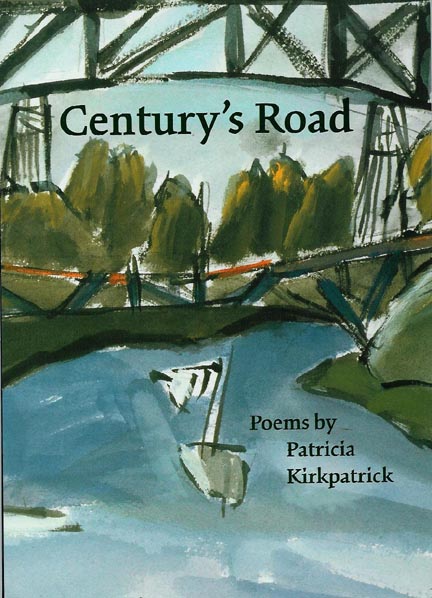A Life in Language: Patricia Kirpatrick
Cheryl Reitan reviews Patricia Kirpatrick's first book, "Century's Road," which collects decades of this poet's work, widely published in journals and anthologies but til now uncollected.

Century’s Road, poems by Patricia Kirkpatrick, Holy Cow! Press, $14.95
Even though some of her topics are childhood, pregnancy, birth, and
menopause, don’t expect sentimental writing in Patricia Kirkpatrick’s
Century’s Road, published this year by Duluth-based Holy Cow!
Press. Maxine Kumin is right when she calls the work “earthy” and
“intensely womanly,” but the work is simultaneously full of
intellectual observation.
Kirkpatrick, who lives in Saint Paul, paints stories of families
and friends, set against the backdrop of Kruschev, the Vietnam War, and
other historical events. In this first collection of her poetry, she takes the reader on a journey beginning in the 1950s and traveling through the late twentieth century.
For instance, in the poem “Chernobyl,” Kirkpatrick’s protagonist holds
her belly “waiting to feel the child move” while on the other side of
the globe, thousands are evacuated from the Chernobyl nuclear disaster
site. The line, “This time geography saves me,” haunts the reader as
Kirkpatrick goes on to describe the impact of Chernobyl on Sweden,
France, Wales, Poland and Czechoslovakia.
“What Highway” is less heavy. It calls up a time of tranquillity, of
picnic tables on the roadside, of berries and birds. However, inside
her words, “Say we were here, once” is an unwritten comparison, leading
the reader to imagine the strip malls and fast food eateries that have
replaced the poem’s calm roadsides.
Occasionally, her otherwise careful language goes on just a line or a
stanza too long. “The Unplanned Child” is clever in its use of the
second-person point of view. Lines like “You begin on a cold date in
winter,” are delightful until the last three lines when the words
become clumsy and abrupt. If it were only as tight as the pithy work
“Afterbirth,” with its startling images of life and death.
Kirkpatrick explores public events intimately. One of the most
powerful pieces, “The Woman in the Veil,” written just after September
11, 2001, asks complicated questions about freedom and trust by
transporting a woman in a veil into places like a Midwestern
neighborhood, New York City, and Afghanistan.
The strength and personal detail in these poems have caused Century’s Road to be chosen by the National Book Foundation for consideration in competition for the 2004 National Book Award for Poetry.
Century’s Road allows us a glimpse into a mind that blends time, memory, and reason. It is worth the read.